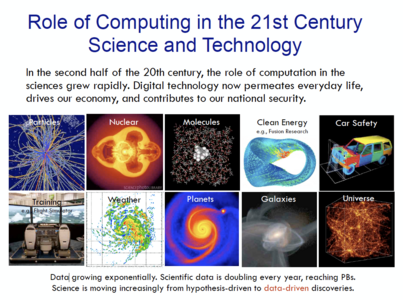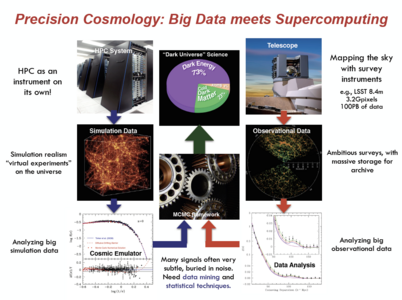
Yale Physics introduces a new course for Fall 2021: PHYS 378 Introduction to Scientific Computing & Data Science, taught by Daisuke Nagai. A full course description is included below.
In addition to this new course, we will be offering PHYS 181 and PHYS 382L in parallel to the regular sequence, in order to provide those who took a leave of absence in the Spring term with the opportunity to take these courses in an appropriate sequence for their own curriculum needs.
Yale Physics is continually developing new undergraduate courses; we invite interested students to periodically check Yale Course Search for new courses and their descriptions.
PHYS 378 Introduction to Scientific Computing & Data Science. Instructor: Daisuke Nagai (Associate Professor of Physics).

 Description: Computational data science is one of the most rapidly developing, highly interdisciplinary fields, promising to change the way we tackle problems in the modern technology-driven society. In the era of big data, many modern sciences are transformed by integrating and synthesizing ever-growing datasets produced by computer simulations, experiments and telescopes in the discovery process. However, in order to harness the power of these large and complex datasets, researchers must combine scientific expertise with new tools and techniques in computational data science. In order to meet challenges, this hands-on computing lab course aims to introduce students to essential computational and data analysis methods, tools, and techniques and their applications to solve problems in physics. These are skills and knowledge essential for getting started on research in modern sciences, but these topics have been absent in the traditional introductory physics curriculum. The course will introduce some of the most important and useful skills, concepts, methods, techniques, tools and relevant knowledge to get started in scientific research broadly defined, including theoretical, computational and experimental research. After this course, students will be able to perform basic programming in Python, data analysis, statistical tools, modeling, simulations, machine learning, high-performance computing, and their applications to problems in physics and beyond. Key learning goals include basic programming in Python, data analysis, modeling, simulations and machine learning and their applications to problems in physics and beyond.
Description: Computational data science is one of the most rapidly developing, highly interdisciplinary fields, promising to change the way we tackle problems in the modern technology-driven society. In the era of big data, many modern sciences are transformed by integrating and synthesizing ever-growing datasets produced by computer simulations, experiments and telescopes in the discovery process. However, in order to harness the power of these large and complex datasets, researchers must combine scientific expertise with new tools and techniques in computational data science. In order to meet challenges, this hands-on computing lab course aims to introduce students to essential computational and data analysis methods, tools, and techniques and their applications to solve problems in physics. These are skills and knowledge essential for getting started on research in modern sciences, but these topics have been absent in the traditional introductory physics curriculum. The course will introduce some of the most important and useful skills, concepts, methods, techniques, tools and relevant knowledge to get started in scientific research broadly defined, including theoretical, computational and experimental research. After this course, students will be able to perform basic programming in Python, data analysis, statistical tools, modeling, simulations, machine learning, high-performance computing, and their applications to problems in physics and beyond. Key learning goals include basic programming in Python, data analysis, modeling, simulations and machine learning and their applications to problems in physics and beyond.